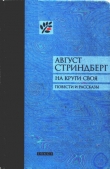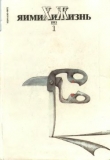
Текст книги "Возвращаясь на круги своя (СИ)"
Автор книги: Геннадий Леви
сообщить о нарушении
Текущая страница: 2 (всего у книги 5 страниц)
Высказав, в такой форме, свое отношение к представителям власти в Литве, он затем долгое время сидел молча, убаюканный разговором между мной и Рутой, но потом, при слове "моссад", вдруг очухался, встрепенулся, воспрянул духом и встрял в нашу беседу без всякого на то приглашения:
"В ошибаетесь, мадам, если думаете, что это замечательное место." – повторил он свое мнение, не дав нам времени возразить – "Это варварская страна. Азиатская" .
"Что?" – у Руты от удивления вытянулось лицо – "Азиатская? Мне все время казалось, что Литва находится в Европе"
"Что? Я плохо слышу, мадам"
"Я говорю: разве Литва не в Европе?" напрягая свой голос до предела прокричала Рута.
"В Европе, в Европе. Очень-очень примитивная страна. Нецивилизованная."
"Нецивилизованная? Почему...? Откуда вы знаете?"
"Что? Я там был во время войны."
И сделав короткую паузу, он громко застучал искусственной челестью:
"А мой сын, мадам, тот, который сейчас живет в Вильнюсе, он меня тоже информирует. Он очень умный сын, мадам, самый умный из всех моих сыновей. Он продает местным жителям старые американские "форды" и они платят ему за них как за мерседесы. Ха-ха-ха. Вот какие они примитивные люди! Ха-ха-ха. Как за мерседесы!"
"Ну, это еще ничего не доказывает"
"Что? Я плохо слышу, мадам. Мой сын меня все время информирует. Он делает в Литве большие деньги и получает хорошую прибыль. Она была бы еще больше, но в этой азиатской стране нужно давать взятки налево и направо: налоговому инспектору..."
"Так о чем же он вас информирует?"
"А? Что? Я плохо слышу вас, мадам."
"Я спрашиваю – о чем он вам пишет?"
" А! О да, да, он пишет. Другие мои дети не пишут. Они глупые и не умеют делать деньги"
"Я спрашиваю – о чем?"
" О чем? Он пишет мне, мадам, что на улицах в Вильнюсе стоят автоматы с сельтерской водой. Это огромные железные ящики, а в них – сельтерская вода. И везде, возле каждого автомата, есть привязанный к нему стакан. Его привязывают для того, чтобы никто его не украл, потому что в Литве все люди мошенники и воры. Они воруют стаканы из автоматов с сельтерской водой. Так информирует меня мой сын. А те люди, которые идут по улице, пьют из этого одного стакана. Все! Из одного стакана! Ха-ха-ха. Они ничего не знают о гигиене. Это нецивилизованные люди, мадам. Троглодиты. У них нет никакой культуры. Я видел все это сам, своими глазами во время войны. У них не было туалетов в домах и мы справляли свои надобности во дворе. Или на улице. Это было ужасно – никакой гигиены."
"Ну, во-первых, я думаю, что многое изменилось с тех пор..."
" А? Что вы сказали? ... Изменилось? В худшую сторону, мадам, только в худшую сторону. Вы должны это знать: много лет коммунисты и коммисары управляли этой страной и научили местных жителей, которые сами есть большие лодери делать ужасные вещи. Я все это видел во время войны. Коммунисты творили такие страшные изуверства, что я не могу вам даже рассказать потому, что вы упадете в обморок. А потом обучили этим вещам местных азиатов..."
"Но почему же коммунисты такие плохие люди?" – вдруг, не с того, ни с сего, словно фурия, вмешалась в раговор дочка Руты Мэри. Она до сих пор сидела молча и смотрела на нас широко открытыми глазами. А тут вдруг встряла в разговор:
"Почему коммунисты творят в мире столько зла?"
Мы все уставились на нее.
Она покраснела.
"Я извиняюсь.." – залепетала девушка, стараясь спрятаться от нас за спину своей матери – " Я очень, очень извиняюсь.... Я не должна была говорить... Но мой дедушка мне столько рассказывал про коммунистов...столько много плохих вещей. Я не могу понять: ведь все люди по сути своей рождаются хорошими. Почему же некоторые из них становятся коммунистами?"
Бедная Мэри! Я мигом вспомнил своего профессора-либерала из Берклинского университета, с его взьерошенными седыми волосами и с выражением экстаза на худом аскетичном лице, когда он диким голосом, забыв про все на свете, приводил цитаты из Марксовского "Капитала" и тому подобную билиберду и уже собрался было ей ответить, как старый пердун опередил меня:
"Все очень просто, мадемуазель." – сказал старик-австриец, почему-то на этот раз, хорошо расслышав заданный вопрос – "Здесь нет ничего непонятного. Большевики и комиссары учат глупых азиатов становились коммунистами"
"Что? Большевики?" – опять удивилась Рута – "А разве большевики и коммунисты не одно и тоже?"
"О нет, нет, ни в коем случае, мадам. Многие делают эту ошибку. Большевики – это вожди коммунистов. Понимаете? Они одурачивают невежественных людей – этих глупых азиатов и те становятся коммунистами. Понимаете? Очень легко одурачить нецивилизованных и глупых азиатов"
"А зачем они это делают?"
"А? Что вы сказали? Я плохо слышу"
"Большевики! Зачем они одурачивают людей?"
"А-а? Зачем? Ради прибыли, мадам, только ради прибыли. Потому что большевики – это евреи. А у евреев всегда должна быть прибыль – это у их такая натура. Они не могут жить без прибыли"
"Мой отец мне тоже говорил, что все большевики – это евреи, но я ему не очень верила"
" Напрасно, мадам, очень напрасно. Ему надо верить – ваш отец очень умный человек и он говорит правду. Все большевики – евреи, это правда: Троцкий был еврей, и Сталин был, и Каганович и Пол Пот, и Мао Цзе Дун ... все они. Я сам это видел когда был в Литве."
"Я извиняюсь, конечно, но это звучит как-то немножко..." – замямлила Рута – "ну как бы это вам сказать? Ну...немножко по расистски, что-ли. Не могут же все евреи быть плохими людьми. А вы случайно, ну..., извините за вопрос, не антисемит?"
"Антисемит? О нет, нет, ну что вы, мадам. Ни в коем случае. Наша страна очень цивилизованная страна. У нас нет антисемитизма. Понимаете? Мы ведь не какая-нибудь азиатскя примитивная страна. У нас однажды даже канцлер был еврей. Крайский его фамилия. Вы, наверное, слышали о нем. Ни в одной стране мира не было еврейского канцлера; только у нас, в Австрии он был. Он был социалистом, как и я. Очень, очень хороший был канцлер, я его глубоко уважаю: он нам, ветеранам войны, поднял пенсии. Поэтому я могу теперь много путешевствовать. Я ему за это очень благодарен. Правда он был австрийский еврей, а не литовский"
На мой вопрос – почему же он сам едет в такую варварскую нецивилизованную страну, как Литва, старый хрыч ответил: "ностальгия". Оказывается во время второй мировой войны он служил в Литве солдатом СС и, получив недавно кучу денег в счет своей пенсии, решил навестить места своей молодости:
"Там, где я стрелял когда-то в большевичков. Та-та-та-та. Из пулетемета."
Ужасно неприятный тип – этот мой сосед справа.
.......
Ну вот, я опять упустил возможность поговорить с Лаймой. Она подошла ко мне несколько минут тому назад и подала завернутую, в несколько изгибов, бумажку и сказала:
"Не потеряйте. Это рецепт той еды, про которую мы с вами говорили. Когда будет у вас время..."
Опля! Что такое? Сейчас только что первый пилот передал по громкоговорителю, чтобы мы выключили все элетронные приборы. Мы идем на посадку, мы приземляемся в Вильнюсе, на земле моих предков. Как-то она нас встретит?
Глава 3
Первым делом, по приезде в Литву, я решил навестить Любу Загорскис, женщину, о которой мне рассказал мой дядя Стэнли. Секретарша из американского посольства помогла мне разыскать ее в городе. Оказалось, что она живет в самом центре Вильнюса, в огромном многоквартирном доме, построенном в сталинское время для важных партийных и советских работников. Дом выглядел, с одной стороны, импозантным, а с другой -совершенно заброшенным, словно долгое время никому до него не было никакого дела: полуразбитые гранитные колонны, облупленная серая штукатурка и перекошенные, ржавые ворота, непригодные даже для металолома. По форме он напоминал правильный прямоугольник с открытым пространством посередине, где, как на дне колодца, в полумраке, росло несколько хилых деревьев, а в стороне от них ютилась заброшенная детская площадка с песочницей и двумя поломанными качелями.
Когда я вошел во двор, то увидел справа от себя группу детей гонявших в пыли с криком и гиком футбольный мяч, а слева, на старой облезлой скамейке, несколько женщин в клетчатых платках, наблюдавших за их игрой. Но как только я появился во дворе все их внимание мигом перключилось инсключительно на меня, и пока я сверялся по бумажке с записанным адрессом и ходил вдоль подьездов в поисках нужного номера, я чувствовал на себе их неослабевающий и внимательный взгляд. Было очень неприятное чувтсво, когда за тобой вот так вот смотрят.
Я не понимаю, они что – сидят на вэлфере и им просто нечего делать?
Лифт в доме не работал и мне пришлось лезть пешком на четвертый этаж.
Пожилая женщина открыла мне дверь почти сразу, как только я нажал на звонок. Она была маленького роста, худенькая, с живыми любознательными глазами.
"You are an American tourist" – сказала она мне в утвердительном тоне – "aren"t you? Come in."
И увидев мое удивленное лицо, она лукаво улыбнулась:
"You might be wondering how I could guess so correctly?
(Ну зачем мне сейчас стараться все вспоминать? У меня весь разговор, все, что она говорила записано на диктофоне. Поэтому копирую ее слова прямо с него)
«It is not a secret – who else could you be? With such American clothes...And such American face... And also couple hours ago the secretary from the American embassy called me and asked, if I wouldn»t mind to see a visitor from USA. What kind of nonsense she was talking about? Of cause, I don"t mind. In my age and loneness any visitor is an entertainment, particularly from far away lands. Your name is...? "
"I see. My – is Lyubov Zagorskis, Lyuba"
"Nice to meet you too. Why are we standing at the door? Please, come inside. It is a little bit dark here, in the hall, so be careful. And watch your head – the doorway is too low. Your secretary did not elaborate on what kind of business brought you here, just said that you want to find out something about my family. May I ask you – why? Are we relatives?"
"Hold on for just a minute. What is the reason for us to stay in the hall? You are not in a big hurry I suppose. And so am I. We can talk sitting comfortably – am I right? Which place would you prefer – kitchen or living room?"
"I, personally, prefer the kitchen. It is not that big, maybe even small for a couple of persons but it is very cozy. Most of my time I spend now here, in the kitchen, since my husband Yurgis had died... You can sit on the chair on this side of the table and I will sit here. What would you like to drink – coffee or tea?"
"Oh, no, no! You cannot refuse – you must have one or the other, this is our custom. Besides, it is impossible to have informal conversation without a cup of tea or coffee. So, which one would you like?"
"It does not matter for me – it takes only few minutes to boil water in the kettle."
"Oh, really? You think my English is very good? How flattering it is!"
"Where did I learn it? Well, mostly I learned it in Kaunas gymnasium, when I was a young girl, before World War II. We had a wonderful English teacher there, I still remember her. And after the war I studied English in university and then worked for 25 years in one of the high schools in Vilnius as a teacher. Yes. But I did not have much practice to speak it with native speakers. Unfortunately, we had very few tourists from the West during Soviet time. So, how can I help you? Did you say that we are relatives?"
"Oh, now I see. You are interested in Kohanskis family, not mine. I guess I misinterpreted what the secretary said."
"Of cause, I remember them – they were our neighbors. Are they relatives of yours? Now a lot of people are looking for their roots, particularly from the West. American Jews, mostly. Sort of a new boom..."
" You are saying that your purpose is different? What is it?"
"Just one moment, young man, just one moment. Here is your tea. It is ready. Would you like a sugar?"
"No?"
"Yes, yes, sure. I most certainly agree with you – a lot of sugar is not good for the health. I, myself, have a light form of diabetes, you know, and use it very, very modestly. Doctor"s advice. When you get older all kinds of diseases are trying to catch you. Not like in young age. You don"t have diabetes – do you?"
"When I was young I was very healthy too. Not any more, unfortunately."
"So, what would you like to know about Kohanskis? They were our neighbors – all three brothers. I did not know their parents though – they passed away before I was born. They lived across the street from us, in one big house. Well, sorry, not all of them. The oldest one left his home when I was still a small child and I don"t remember him: not how he looked, not how he dressed and not how he spoke. Nothing. His name was, I think, Chaim but I am not sure."
"Where did he go? He probably moved to Kaunas. That is where most Jews went, when they were leaving our town. Although I remember in conversations about him the small town of Babtai was mentioned. Maybe that is where he went. It was long time ago and my memory is not so good anymore. And to tell you the truth I was never interested where he went. Maybe he even visited his family in Linkuva occasionally. Who knows? I did not see him. Is he the one who is interested you? Your tea is getting cold, by the way. Would you like me to warm it a little bit?"
"Are you sure? We don"t have microwaves here as you do in America but I still can..."
"Maybe, then, I shall add a little bit of hot water into your cup? Just a hot water..."
"So, where did I stop? Look! I suddenly remembered. My memory is not good any more – didn"t I tell you? I have great cookies and I completely forgot about them. What a silly person I am! Please try – I made them myself. I baked them yesterday for the young scouts, who were planning to visit me. Cookies are still pretty fresh. Try, I put a lot of effort to make them right – I wanted to treat the scouts with something homey and tasty."
"So, tell me your opinion. Do you like them?"
"Who? The scouts? How do I know? They never showed up. Probably their teachers found out that they made a mistake by mixing me with somebody else. You see – they have now in middle schools a new program (as part of curriculum) to visit veterans of WWII but I guess that yesterday they figured out that I am a veteran of a different kind. Not the one who they are supporting, but opposite – the one who fought veterans that they are supporting. Do you understand? Since Lithuania gained independence everything went upside down – who was a bandit became a partisan and who was a partisan became a bandit. Crazy world!"
"I am so sorry that I moved away from our subject, young man, but the present set of affairs in Lithuania annoys and confuses me a great deal. It brings worries and discontent and it is so much on my mind that I cannot sleep at nights; I feel great urge to discuss this matter with somebody else, with someone whose opinion I could trust but.... I am very lonely. You are an outsider and probably can see things differently, without premature conclusions or prejudice. Since Yurgis, my late husband, had died 5 years ago, I lost (how do you say it in English?) – a fulcrum. Is that the right word – a fulcrum?"
"He was a very smart person, very knowledgeable, you know, and I used to rely on his opinion a lot. Actually, I can tell you without any exaggeration that my husband was the smartest person I ever met in my life. You may not believe me – but it is true. Why do you think I married him? When we met (it was in the late thirties) in Kaunas Yurgis impressed me so much that I immediately fell in love. Instantly. He was like a walking encyclopedia: he knew everything about everything and I never got bored with him. He was such kind of person. He studied law in the university but could not finish his studies because police arrested him for his political views and incarcerated. He spent two years in prison. Never the less, in the fifties, when he was already a middle age man, he went back to school and received Ph.D. in history. He had a brilliant mind! And he also was gentle and considerate... – what can I tell you? We spent so many years together, wonderful and difficult years; I missed him very much..."
"Wait a minute! Why am I telling you about my husband? Oh, yes, of course – because I feel myself very lost these days. For you, as an outsider, the latest events here, in Lithuania, might look even more confusing than they do for me. I don"t know. But let me tell you that for us, particularly for those who like myself, fought Nazis during WWII they appeared to be incomprehensible. When we fought fascists, both – domestic and invaders, when in the thirties, we struggled to create a better society here, in Lithuania, we never imagined that it would come to such abrupt and unexpected end, when murderers and bandits could be glorified as national heroes. It is very, very sad for me to see."
"What? You think that it might be reaction to our policies in the past? Of course, I realize that some of our actions made a lot of local people angry – I am not loony or crazy or very old – I am only in the seventies. Sure, we made mistakes. But who does not make them? Everybody does and it is always easier to find mistakes in actions of someone else than to avoid making them yourself. Do you agree with me? We were young and naïve and we trusted imposters and scoundrels, like Stalin, who used us for his own purpose. And sometime we were probably overly zealous or too inflexible in pursuit of our dreams. But we always believed that what we were doing was the right thing to do: we believed that bringing justice and equality to everyone would make the world a much better place. Do you understand me?"
"Well, I don"t know, I cannot argue about that, young man. See, before communists took power in Lithuania, people lived here under the rule of military junta. Dictator Smetona was then the president – so called "the president for life". Have you heard of him? Lithuania was then some sort of "banana republic" – corrupted, undeveloped and poor, like many countries are now in Africa or in Central America. Or like Chile was not that long time ago, remember? When dictator Pinochet was in power. Lithuania was like Chile – there were few people who had power: this Smetona – so called "president", top military officers, appointed by them members of the government, secret police. They used torture and violence to protect their power and their wealth. And then there were others – poor people, majority, those who did not have and never would have any power. Do you understand? It was unfair. Everyone, every human being, is born equal – do you agree with me? The purpose of our struggle was noble, young man: we wanted to bring to all citizens of our country freedom, equality and prosperity. Now new Lithuanian government glorifies Nazi collaborators, bigots and murderers just because we made few mistakes in the past. It sickens me."
"Yes, I heard – nonviolent forms of resistance. Gandhi, Martin Luther King... My husband had Ph.D. in history, young man. But let me remind you about two facts, which could prevent us to use these methods even if we would try to. Do you want to hear about them? Okay, first of all, if you remember, Gandhi (I am not sure if you study this in your capitalist schools) during WWII often tried to undermine Great Britain efforts to fight imperial Japan: he called members of the anti-Nazi coalition to surrender and accept Nazi rule and superiority. He opposed bombing by Allies of Nazi concentration camps because it would undermine his theory of not resisting murder by violent means. He suggested Jews to go to gas chambers voluntarily. He was willing to sacrifice millions of lives in China and Europe in order to achieve independence for India. He was a very, very selfish person! He was a nationalist. He did not care if millions of innocent non-Indian people would die or become slaves as long as India could gain its independence. That was disgusting. No, I am sorry young man; but he could not be our role model, example for imitation. We were internationalists and not nationalists and chauvinists like Mr. Gandhi and Nazis. And, besides, there was one more, even more serious reason why we could not succeed with such non-violent tactic. You may notice that it succeeded only against democratic governments like Great Britain and USA. Military junta, on another hand, as a rule, does not consist of overly conscientious people, young man."
"No, no, I don"t mind if you argue. I only have a look of seventy years old woman but in my heart I am still seventeen. So, don"t worry! And I like when somebody disagrees with me. It is fun; it is how the life supposes to be. Don"t you think so? I"ll tell you even more – if everybody would agree with everyone on everything the life would be extremely boring. Believe me. Besides, the "truth springs from the argument among friends" – do you know such proverb? When we were young we knew it by the heart. We used to argue all the time. Yes, all the time. Days and nights. What a wonderful time it was! We argued about everything – politics, science, books, and new movies... I don"t know how young people entertain themselves nowadays but I think that there is nothing more entertaining than arguments and discussions. Efforts to find the truth... We were lucky people... "
"Oh, most definitely. Sometime we did not speak to each other for years. "Comes with the territory" – is that how you say it in English? Of course, we had problems, but that was, I would say – the life, and I missed it dearly. And I am so delighted that you came to visit me. Such a change! People who surround me now, with whom I have to socialize, speak only about diseases, drugs and insurance. Boring stuff. Old people are boring, young man. I hate them."
"Oh -yes, sure. And don"t be shy – take as many as you want. I will not eat them anyway. Doctor"s advice – diabetes, you know. Let me add you some more hot tea. So, what did you want to find out about Kohanskis?"
"And by the way – this reminds me. I didn"t know the older Kohanskis brother. But the other two were very different from each other. We have a proverb: the apple does not fall far from the apple tree. But these two seems to me did fall pretty much apart. The younger one – Dovid (everybody called him Dovid der Shloser) was working in the mechanical shop for mister Peresman. Or Perelman. Well, I don"t remember his last name... Anyway, this man, Peresman or Perelman, came to our town, nobody knew from where, in the beginning of the thirties... Well, I think it was beginning of thirties. He was a shrewd, noisy and energetic fellow, real Jewish capitalist. He started his business by putting up electrical poles and hanging on them electrical wires around the town. You see, we did not have the electricity then. So, he bought an old warehouse on the outskirts (and I assume – at very cheap price) of the town to house electrical generator, which he built himself, wired it to the homes of rich people and started to deliver electricity, collecting money for his service; although only few residents could afford it. I remember how for the first time we had electricity in our home. It was such a wonder – to light up an electrical bulb; it was like in a fairy tale, unreal and unbelievable. This first moment when the bulb lit up I cannot compare to anything else in my life. And my dad was so happy then..."
"At the beginning this Peresman (or Perelman, or whatever his name was) did everything by himself – put electrical poles, laid wires, even walked around the town to collect money for electricity (there were no electrical counters then and he collected money depending on how many bulbs each customer had – very crude way to collect money), did repair and other stuff but when he got rich he hired Dovid der Shloser to do the dirty work for him. In other words – Dovid was the blue color worker, sympathetic to our cause..."
"What had happened to him later? To whom – to Dovid der Shloser? No? Peresman? I thought you are interesting in Kohanskis."
"Oh, I see, just for curiosity? Well, if you are so curious...We (I mean – NKVD, which is how then the KGB was called) arrested him. I believe it happened in 1940, in autumn, to be more precise, right after dictator Smetona was removed from the power and Lithuania became democratic country and joined Soviet Union. Most likely, he was sent later to Siberia, to the labor camp. That is where all criminals eventually ended. Together with his family, of cause."
"What for? For the felony, young man, for the felony."
"Oh, I see. Well, I am sure you have heard the lies of the capitalist propaganda that communists were arresting people just because they were rich. This is not true: for example, this Perelman was arrested not because he was rich but for the crime he actually committed. He tried to destroy his own generator when we confiscated it. You see he was a scoundrel – this Perelman; he used the generator to make money by servicing only rich people at a very high price. He was looking only for the profit. But everybody needs electricity – does not? Even poor people do – those who could not afford his prices. Right? So, we nationalized the generator, paid him some money to compensate for the losses and that could be the end of the story. But the crook got upset and tried to destroy the generator. It was a criminal offense, called sabotage: destruction of the government property. He was punished according to the law."
"Why his entire family? That was the law then too."
"You think – it was draconian and irrational law? There is nothing irrational in life, young man. Everything has the reason. The law was made to avoid vendetta, to exterminate an "eye for eye" culture: it was made to prevent what you might call "cycle of violence". If a relative or a friend of the convicted criminal would be left alone, he or she could take revenge on authorities and then somebody else could take revenge on this person as well. And so on. But if you remove the entire family then peace comes to everybody, even to those who were sent to Siberia. Perhaps the law was not fair for everybody but braking the "cycle of violence" never is – correct? Or do you think that continuing of violence could be a better solution?"
"Me? I would accept my fate without any regret or hard feelings and I am telling you the truth. Many of my friends, young man, were unjustly persecuted by the Soviet authorities; their loved ones perished in the hands of KGB. Never the less, despite of the personal tragedies, most of them remained devoted communists and actively supported communist party all the time, even when they themselves had been unjustly persecuted. More than that. Few members of the KGB were involved in prosecution of their own families and friends but they still continued to work for that organization. Why? Well, because the true communists always believe in a higher predestination than to respond to the despicable actions of individual villain or fool, who, by pure accident, one time or another was able to obtain power and commit acts of injustice. Individuals could be wrong and evil, young man, but the communist idea which promotes equality and social justice for all – cannot."
"Oh, yes, I am sorry; I deviated too much from our original conversation. It is your fault, young man – you are asking too many questions. And my too – I like to answer them. So, returning back to Kohanskis. I just wanted to tell you how different two brothers were. One of them, Dovid der Shloser, was, (and I think I mentioned to you this already) (did I?), a "blue color" worker, he had large family and, if I"m not mistaken, rented from the older brother apartment in his own house. When we, communists, gained power in 1940 and asked for volunteers to run local affairs he offered himself to be a deputy chief of police. He learned this new trade pretty fast and did a good job by catching thieves, burglars and bandits – those who wanted restoration of the old dictatorial regime, although he did not join our party... "
"Were all communists Jewish? Why did you ask that? Of course, not. There were non-Jewish communists also. My late husband Yurgis, for example, was not Jewish. (I am Jewish in case if you are curious. No, not in religious sense, that is for sure, but just Jewish). Jurgis, though, was from the devoted and very strict catholic family (he himself later became an atheist). It might be difficult for you to understand... We were internationalists (if you know what it means); we did not differentiate people by the color of their skin or by their religion or by their culture. We differentiated people only on the account of oppressors and oppressed – those who were rich and those who were poor. And we always were on the side of the oppressed poor people."
"Yes, you are correct in that respect – indeed majority of communists were Jews. Why? I don"t know – why. Maybe because Jews were more educated. Or maybe because they were more oppressed than others. In Smetona"s time Jews in Lithuania were second-class citizens – they were discriminated and constantly abused by the authorities. Officially Jews had the same rights as native Lithuanians did but unofficially they were barred from many important positions and fields, like from taking top administrative posts in the government or military or police. Jews wanted to change such unfairness; they wanted to be equal as all other citizens in their country. That was probably the main reason. I guess. Besides, young man, communists were fighting for the rights of all people, not only for the Jews. They wanted to give freedom and equality to everybody. You might be mixing something up... These were Zionists who fought exclusively for the Jews. We, Lithuanian communists, Jews and non-Jews, both, on a contrary, did not accept such backward and racist ideology and fought Zionists the same way we fought all other nationalists, including those Lithuanian fascists who are now gained power in this country."
"Oh – the other brother? The other brother was Moishe-Boruh. He was a completely different apple. During time of Smetona regime he became a merchant. He operated the wholesale business, buying flax and wheat from peasants and then reselling those items. He was famous in our town for his enormous cupidity – he was afraid to lose even a penny. During market days, when farmers were bringing produce into the town, he was waiting them on Gymnasium Street, stopping their carriages and inspecting. If he would see the flax he would ask a farmer to pull his carriage over to the Moteyaus Pozela"s yard and then he examined its content even more carefully, from the close distance: he would take bundle of flax and scrutinize it from the different sides and angles, strike it and sometimes even lick. As soon as he would make his mind he would start bargaining. The process usually would take very long time, with a lot of screams and scolds from both sides, until both of them, Moishe -Boruch and a farmer, got sick and tired of each other. Sometimes a farmer could leave the yard even without selling anything and then Moishe-Boruh would run after him offering a lower price. He was such a character. When we were kids we often followed him – it was a lot of fun for us to watch how he quarrels with farmers. Is he the one who you are looking for? "








